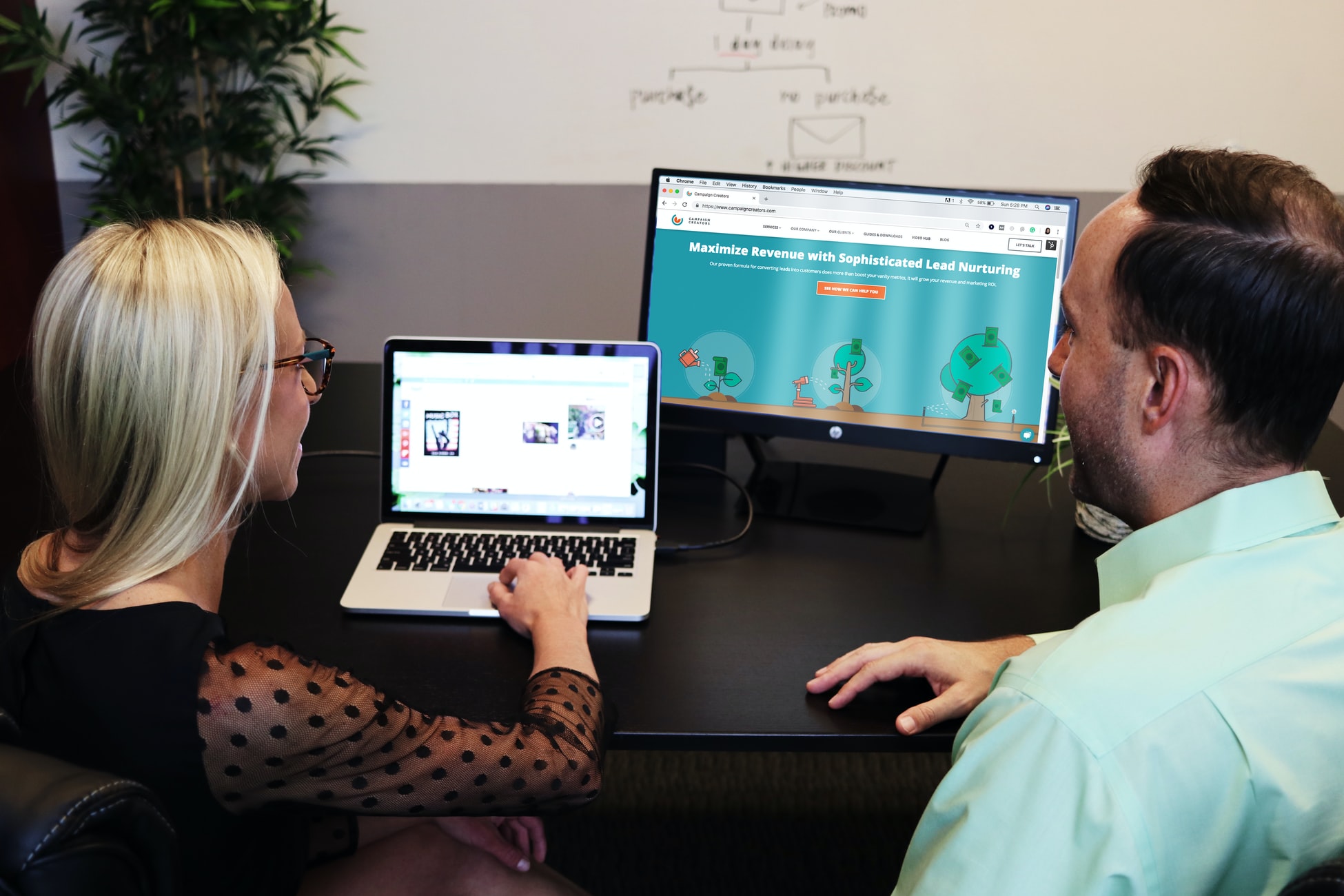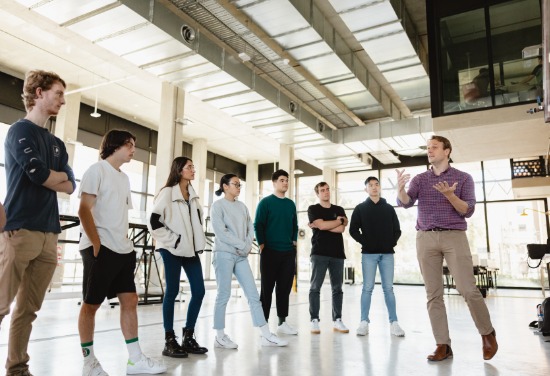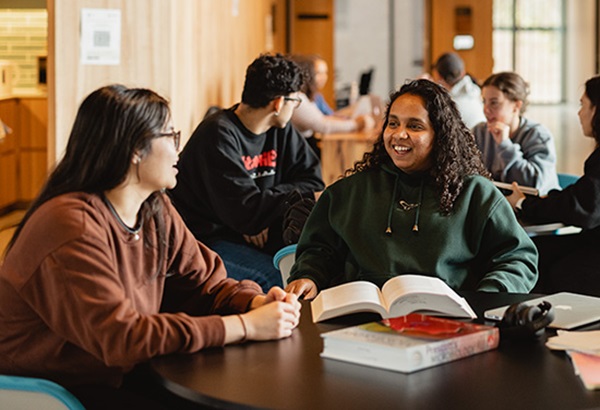Our UWA Business School academics have been hard at work adapting and enhancing their classes for online teaching in 2021.
Great news for international and interstate students: all classes within the Bachelor of Commerce, Bachelor of Business and Bachelor of Economics/Master of Economics are available online, so you can study your UWA business degree from the comfort of your home.
Many classes within the Master of Commerce, Master of Professional Accounting, Master of Business Analytics, Master of Marketing and Master of Applied Finance will also be available online, allowing aspiring postgraduate students from all over the world to continue their education.
We spoke to some of our course coordinators to find out the exciting activities they have in store for their online students.
In the Bachelor of Commerce…
ECON1101 Microeconomics: Prices and Markets
 This introductory microeconomics unit provides students with all the basic building blocks of economic reasoning and analysis. We will learn how markets work to coordinate consumers’ wants and needs with producers’ objective of wealth creation, how this affects the welfare of everyone in society, and how governments can intervene to reduce or increase that welfare.
This introductory microeconomics unit provides students with all the basic building blocks of economic reasoning and analysis. We will learn how markets work to coordinate consumers’ wants and needs with producers’ objective of wealth creation, how this affects the welfare of everyone in society, and how governments can intervene to reduce or increase that welfare.
Both on-campus and online learners will engage with the unit material through three types of formal activities:
- Weekly videos to introduce learners to all core concepts covered in the unit. Learners can absorb this in their own time and pace early in the week.
- A small number of workshops each week where I go through applications and problems. Learners can attend in person or online. The intention is for these classes to be fully interactive and discussion based.
- Small-group sessions are held most weeks both on campus and online, facilitated by trained mentors. In these sessions, learners work together in small teams collaborating to solve set problems and receive formative feedback on their work by their mentors.
Throughout the semester, learners will be regularly assessed on their understanding of core concepts and their ability to apply basic economic analysis and sound economic reasoning, and will receive formative feedback to help develop these skills.
My intention is that all learners will be able to engage meaningfully with the material, with each other and with the academic staff – whether they do so in person, online or a combination of the two.
FINA1221 Introduction to Finance
Introduction to Finance introduces the basic concepts of financial management and provides you with an opportunity to understand the fundamental tools of financial decision making. We encourage you to be forward-looking in understanding financial markets by measuring time in dollar terms.
The learning is through a blend of online video content, recorded face-to-face lectures and a 24/7 online discussion forum. You will have an opportunity to join the live conversation with your lecturers on Zoom every three weeks.
The weekly tutorial session will be live on campus and Zoom from Week 3. Students will be required to participate in the tutorial. There will be 4 random tutorial quizzes throughout the semester.
ACCT1101 Financial Accounting
 Accounting is a discipline with many core concepts that can sometimes be complicated by the discipline language used when explaining it. I addressed this challenge by chunking the weekly lecture content into 3-5 shorter recordings with each recording focusing on 1-2 key concepts. Students enrolled in Semester 2, 2020 commented that the online lectures in this format “were organised effectively and clearly explained most concepts” and that “the multiple short subject videos for 1 lecture were an innovation that other teachers might like to be exposed to”. Since these lectures are pre-recorded and watched at own pace, students can re-watch sections they struggle to understand.
Accounting is a discipline with many core concepts that can sometimes be complicated by the discipline language used when explaining it. I addressed this challenge by chunking the weekly lecture content into 3-5 shorter recordings with each recording focusing on 1-2 key concepts. Students enrolled in Semester 2, 2020 commented that the online lectures in this format “were organised effectively and clearly explained most concepts” and that “the multiple short subject videos for 1 lecture were an innovation that other teachers might like to be exposed to”. Since these lectures are pre-recorded and watched at own pace, students can re-watch sections they struggle to understand.
I further created opportunities for students to engage with the content while watching the recordings by developing worksheets with activities which are embedded in the recordings. Students have the choice to pause the recording to complete an activity or continue listening for a discussion. Students that engaged with the material found it useful, saying “the worksheets during the lectures really helped with information retention and are a fantastic idea to keep focus during some of the weeks with rather dry content”.
The pre-recorded lectures are supported by online tutorials that are run live at the same time using Microsoft Teams. During the tutorials, students can ask tutors to clarify concepts they don’t understand. In addition, each week has a dedicated discussion board on the LMS where students can post their questions anonymously. The discussion boards are monitored by the lecturer and student queries are answered promptly.

ECON2233 Microeconomics: Policy and Applications
The intermediate unit in microeconomics aims to build a firm foundation in the concepts used in the study of economic behaviour and evaluating policies. The understanding of advanced subjects in microeconomics depends crucially on the skills students develop in this unit.
As with all skills, only practice makes perfect. We will do this in several ways. The discussion of a theoretical subject in the lecture will be sprinkled with discussions about the recent economic developments and practice questions. At the end of each lecture, the discussion will move to the discussion board on LMS. This will ensure those who watch the recorded lecture can also take part in the discussion. The discussion threads will have no closing date. The tutors and I will actively participate on the discussion board.
In each lecture I’ll assign several practice questions that students must solve and turn in within 10 days. During this period, all students who attend in-person tutorials will meet their tutors. The tutors will discuss questions similar to those on the assignment to help students understand the methods a second time. The tutor will also clarify any remaining doubts the students have.
For those who cannot attend the tutorials in person, we will first send them a recorded video that goes over the same set of questions solved during the in-person tutorials. Next, to ensure the online students have the opportunity for interaction, I will hold a second round of discussion via Zoom. While participation in these sessions will not be mandatory, I will actively encourage it.
In the Master of Commerce…
MGMT5511 – Introduction to Global Business
 Introduction to Global Business is a unit taught both face-to-face and online. Since teaching online and offline simultaneously limits the potential engagement with students in each individual method of delivery, the unit will have regular classes for the face-to-face students, which will subsequently be uploaded for the online students.
Introduction to Global Business is a unit taught both face-to-face and online. Since teaching online and offline simultaneously limits the potential engagement with students in each individual method of delivery, the unit will have regular classes for the face-to-face students, which will subsequently be uploaded for the online students.
Online students will have special discussion sessions organised for them where they can jointly discuss and ask questions about the materials covered in class. Of course, this still limits the opportunities for online students to participate in discussions, so they will also gain access to a Slack channel that will serve as an online discussion board. This provides the online students with an informal and accessible platform for further discussion.
While students are encouraged to use this platform to continue the debates that emerged during class, I will also regularly provide content and discussion points here aimed at the online cohort on topics beyond what is covered in class (for example, coverage of more in-depth or related topics that aren’t discussed during class, responses to recent events in the news, etc.). This way, the online students can stay engaged with the material in a way that doesn’t disadvantage them compared to the offline students.
- Dr Ron Maas

ECON5541 Economics for Business: Applications and Policy
Economics for Business is a fully online unit in Semester 1. It introduces fundamental economic concepts to students without a background in economics and focuses on how these concepts relate to key practical business decisions for a firm.
In a typical week, a student will be expected to watch and read the assigned content as well as complete worksheets and case studies that reinforce this content. Once these worksheets have been completed and uploaded to us, you will receive a feedback video from your lecturer. You will also have the opportunity to talk directly with your lecturer each week to have any remaining questions answered.
In terms of assessments, there will be online quizzes throughout the semester (10 in total), as well as 2 assignments to complete. Assignment 1 is due in Week 5 and meant to be an individual assignment. Assignment 2 is due in Week 10 and will be a group project. A final exam at the end of the semester completes your assessment for this unit.
- Dr Andrew Williams
In the Master of Professional Accounting…
FINA5533 Finance Essentials
 Studying Finance Essentials helps equip participants with financial literacy for their personal and professional financial decision making. In this unit, we teach financial theory with practical examples to explain the real-life implication of it. One of this unit's educational principles is developing the ability and desire to work effectively in team situations to resolve financial issues and make a recommendation based on the company's available information. To that effect, a team-based learning approach is adopted for several activities to provide you with opportunities to develop the skill to function as part of a virtual team, an opportunity unique to the online delivery mode.
Studying Finance Essentials helps equip participants with financial literacy for their personal and professional financial decision making. In this unit, we teach financial theory with practical examples to explain the real-life implication of it. One of this unit's educational principles is developing the ability and desire to work effectively in team situations to resolve financial issues and make a recommendation based on the company's available information. To that effect, a team-based learning approach is adopted for several activities to provide you with opportunities to develop the skill to function as part of a virtual team, an opportunity unique to the online delivery mode.
Unit delivery
Lecture: I record several short videos to cover each week's learning materials. Each video covers 1 or 2 key concepts relevant to the weekly topics.
Tutorial: I hold a weekly 1-hour zoom interactive session for discussing each week's learning materials. In this session, I use the Zoom break-out room to break students into small groups to discuss the problems for 15–20 minutes and then return to the main Zoom room. Given the time limit, in the main Zoom room, I randomly pick up students for discussion to understand their preparation.
Online quizzes: I use Pearson My Finance Lab for ongoing practice and preparation of the weekly topics.
- Dr Mosharraf Hossain








